Instructor Led Training - Online / Offline
DEVOPS MASTER PROGRAM
Devops | Redhat Openshift | AWS
Learn cutting-edge tools and practices to streamline collaboration, automate workflows, and enhance the efficiency of your IT operations
- Flexible Schedules
- Live Training
- Real Time Projects
CubenSquare
Devops Master Program
Overview
In the dynamic landscape of IT, mastering cloud-native development, container orchestration, and DevOps practices is crucial. The Red Hat OpenShift, DevOps, and AWS Combo Training by CubenSquare is a comprehensive program designed to equip participants with the skills and knowledge needed to thrive in today’s technology-driven world.
Plan, Build, Integrate, Deploy, Monitor, Operate, Feedback
40 Hrs Instructor-Led Training
Redhat,AWS,Devops Training
Redhat Ebook
Redhat Certification
1 Exam Retake
Redhat Lab
Job Assistance
DevOps training equips you with the skills to streamline software development and operations, making you an invaluable asset in today’s tech landscape. It accelerates your career by providing expertise in automation, collaboration, and modern software delivery practices, fostering efficiency and innovation.
DevOps practices, coupled with AWS’s scalable infrastructure, enable dynamic provisioning and auto-scaling, ensuring applications can handle varying workloads efficiently.
Here are some of the prerequisites to enroll for this DevOps course online:
- Basic knowledge of Linux or scripting is good to have. If not you could take up a Basic Linux training too
- No Prior IT experience – easy conversion from Non IT to IT
Combining DevOps and AWS allows for seamless integration of cloud services with agile development practices, enabling faster and more efficient delivery of software.
Learning AWS and DevOps together can be intense, demanding both cloud expertise and a shift in development practices.
The roles and responsibilities of a DevOps engineer include communication and collaboration, system administration, deploying applications, introducing DevOps processes and methodologies, configuration management, etc.
The lab environment allows candidates to gain practical, hands-on experience with Red Hat technologies. It reinforces theoretical knowledge and prepares individuals for real-world scenarios.
Yes, you can retake a Red Hat exam – 1 Free Retake is available
Hands-on practice in a lab environment is crucial for reinforcing concepts. Reviewing official documentation is also recommended. Exam Prep sessions are conducted in CubenSquare
OpenShift integrates with CI/CD pipelines, automates application builds and deployments, and fosters collaboration between development and operations teams, aligning with DevOps principles.
Course Content
- Devops
- Redhat Openshift
- AWS
- Devops Intro
- Docker Container
-
Kubernetes:Container
Orchestration tool - Jenkins – CI
- Ansible
- GIT – Version Control
- Prometheus & Grafana
- Interview Q & A
- Real time Scenarios
- Demo & Hands-on
-
DevOps Job Roles
& Responsibilities
- DevOps Intro & History
- DevOps Market Trends
- DevOps Role & Skills
- DevOps Delivery Pipeline – Zoom out
- DevOps tools
- What is Container
- What is Docker
- Why Docker: Traditional Vs Virtualization Vs Containerization
- Docker Components
- Install Docker on Ubuntu
- Running Hello World in Docker
- Running a Docker Container in Detached Mode
- Deploy, Login, exit container
- List, Start, Stop, restart containers
- Where containers are stored
- Working with container hostnames
- Working on multiple containers
- Container stats and inspect
- Creating, Starting, Stopping, and Removing Containers
- Writing Your First Docker file
- Build an image
- Packaging a Flask Application Inside a Container
- Versioning an Image with Tags
- Setup private docker registry
- Volume & Storage
- Logs
- What is Kubernetes
- Kubernetes Cluster
- Kubernetes Architecture
- Why Kubernetes
- Perform Kubernetes essential commands
- Install & configure Multi Node Cluster
- POD
- Deployment
- Service
- Replica set
- Replication controllers
- DaemonSets
- Namespace
- Resource Limits & Pod Scheduling
- Launch a sample application
- Introduction to YAML
- pod.yaml | deployment.yaml | service.yaml | and many more
- Labels & Selectors ✓ MulticontainerPod
- Persistent Volume
- Autoscaling
- Jboss Installation using yaml
- Helm
- Deploy Strategy – Rolling update | Blue-Green
- Drain, Cordon & Uncordon ✓ Taint & Tolerations | Node Selector | Pod Affinity
- Logging & Monitoring
- What is Continuous Integration
- What is Jenkins
Jenkins Management - Jenkins Installation on Windows
- Jenkins Installation on Linux
- Jenkins Installation on Docker Container
- Jenkins Installation on Kubernetes POD
Installing - Jenkins – Master & Slave setup
- Jenkins Dashboard navigation
- Creating and Running Jobs – Freestyle & Pipeline setup
- Setting up global environments
- Adding and updating Plugins
- Build pipeline Delivery
- Pipeline as a code – Jenkinsfile
- Managing Users & Role based access
- Jenkins – Git Integration
- Jenkins – Maven Integration
- Jenkins – Tomcat Integration
- Jenkins – Docker Integration
- Jenkins – Kubernetes Integration
- Jenkins – Ansible Integration
- Jenkins – Prometheus Integration
- Jenkins – Grafana Integration
- Logging
Pipeline setup – CICD
- Ansible Intro
- Ansible Installation
- Configure Control Node & Managed node
- Ansible-Playbook
- Ansible-Vault
- Ansible-Galaxy : Roles
- Modules
- Ansible – Docker
- Ansible – Kubernetes
- Ansible – Git
- Ansible – Jenkins Integration
- What is Version Control
- What is Git
- Git Alternatives
- GIT Basics
- GIT Command Line
- Installing Git
- Installing on Linux
- Installing on Windows
- Git Essentials
- Creating repository
- Fetch pull and remote
- Branching & Merging
- Creating the Branches, switching the branches, merging branches
- Monitoring Cluster Components and Applications
- View the Logs
- Managing Logs
Logging/Monitoring - Monitoring tools: Prometheus & Grafana
- Discuss on interview questions & answers
- Discuss the real time scenario , environment setup
- Each topic will carry a guided exercise for hands-on practice
- Discuss on day to day activities , roles & responsibilities of Devops Engineer
- Overview
- Outline
- Outcomes
Course description
Configure, manage, and troubleshoot OpenShift clusters and containerized applications
Red Hat OpenShift Administration II: Operating a Production Kubernetes Cluster (DO280) teaches you how to configure, troubleshoot, and manage Red Hat® OpenShift® Container Platform. This hands-on, lab-based course shows you how to verify the successful installation of a cluster, manage it on a day-to-day basis, and troubleshoot the deployment of containerized applications.
This course is based on Red Hat® Enterprise Linux® 8.2 and OpenShift Container Platform 4.5.
Course summary
- Describe the Red Hat OpenShift Container Platform cluster installation and update processes
- Troubleshoot application deployments
- Configure authentication using local users
- Control access to projects using role-based access control (RBAC)
- Expose applications to clients external to the cluster using TLS encryption
- Configure network isolation between services and applications using network policies
- Configure application scheduling using labels and selectors
- Limit compute resource usage of applications with resource limits and quotas
- Manage a cluster and deployed applications with the Web Console
- Install Kubernetes Operators with the Web Console
Audience for this course
- System and Software Architects interested in understanding features and functionality of an OpenShift cluster.
- System Administrators interested in the ongoing management of clusters and containerized applications.
- Cluster Operators interested in managing access to cluster resources by users and applications.
- Site Reliability Engineers interested in the ongoing maintenance and troubleshooting of a cluster.
Technology considerations
- Internet access is required.
Prerequisites for this course
- Become a Red Hat Certified System Administrator, or demonstrate equivalent Red Hat Enterprise Linux system administration experience
- Complete Red Hat OpenShift I: Containers & Kubernetes (DO180), or demonstrate equivalent experience with containers, Kubernetes, and OpenShift basics
Take our free assessment to gauge whether this offering is the best fit for your skills.
Outline for this course
Describe the Red Hat OpenShift Container Platform
Describe the architecture of the Red Hat OpenShift Container Platform (RHOCP).
Verify the health of a cluster
Describe OpenShift installation methods and verify the health of a newly installed cluster.
Configure authentication and authorization
Configure authentication with the HTPasswd identity provider and assign roles
to users and groups.
Configure application security
Restrict permissions of applications using security context constraints and protect access credentials using secrets.
Configure OpenShift networking for applications
Troubleshoot OpenShift software-defined networking (SDN) and configure network policies.
Control pod scheduling
Control which nodes a pod runs on.
Describe cluster updates
Describe how to perform a cluster update.
Manage a cluster with the web console
Manage a Red Hat OpenShift cluster using the web console.
Impact on the organization
Impact on the individual
After completing this course, you should be able to demonstrate the skills to establish a new OpenShift cluster, perform initial configuration of the cluster, and manage the cluster on a day-to-day basis. One major focus of the course is troubleshooting common problems that will be encountered beyond day one.
- What is AWS
- AWS Services
- IAM & S3
- EC2
- Cloudwatch
- Databases in AWS
- Route53
- VPC
- HA Architecture
- Application and Serverless
- Introduction to the course
- What is AWS
- AWS Console
- AWS High Level Services
- AWS Global Infrastructure
- AWS Availability Zone, Region, Edge Location
- Essential Services for this Course
- What is IAM
- Components of IAM
- Features of IAM
- S3 Simple Storage Service
- AWS Storage Choices
- Benefits of S3
- Use Case of S3
- S3 Storage Classes
- S3 Features & Consistency
- S3 Charges
- S3 Lifecycle Management
- What is EC2
- Creating your first EC2 Instance
- Launching of Ec2 Instance
- What is AMI
- What is ARN
- Restrict access using Security Groups
- EBS
- Snapshots & Volumes
- AWS Command Line
- What is Cloudwatch
- Create alarm using Cloudwatch
- List of Databases in AWS
- RDS Backups, Read Replicas, Multi AZ
- DynamoDB
- Redshift
- Aurora
- Elastic Cache
- DNS
- Route53 Routing policies
- Simple Routing
- Latency Routing
- Failover Routing
- Geolocation Routing
- Geo Proximity Routing
- Route53 Demo
- Understand VPC
- Create VPC
- Create a own architecture
- NAT Gateway
- Access control List
- VPC Flow Log
- Bastions
- VPC Endpoints
- Introduction to Load Balancer
- Advanced Load Balancer
- Autoscaling Groups
- High Availability Architecture
- Create application with HA Architecture
- Introduction to Load Balancer
- Advanced Load Balancer
- Autoscaling Groups
- High Availability Architecture
- Create application with HA Architecture
- SQS
- SNS
- API Gateway
- Serverless
- Lambda Concepts
- Creating first Lambda
- Integrating Lambda with API Gateway
CubenSquare
Students from Across
the Globe

CubenSquare
Red Hat Certified OpenShift Administrator exam
By passing this exam, you become a Red Hat Certified OpenShift Administrator that also counts towards earning a Red Hat Certified Architect (RHCA®).
Networking
A community is formed were all members interact and help each other – during and after the training along with Mentor Guidance
- Collaborative Workspaces
- Knowledge Sharing Sessions
- Troubleshooting
- Continuous Learning Culture
CubenSquare
Certification
This Course involves – Training and Certification from CubenSquare and a Certification from Redhat (Certificate Sample in Redhat Website )
- Hands on Training
- Real Time Projects
- Assisgnments
- Course Completion Certificate
- Job Assistance
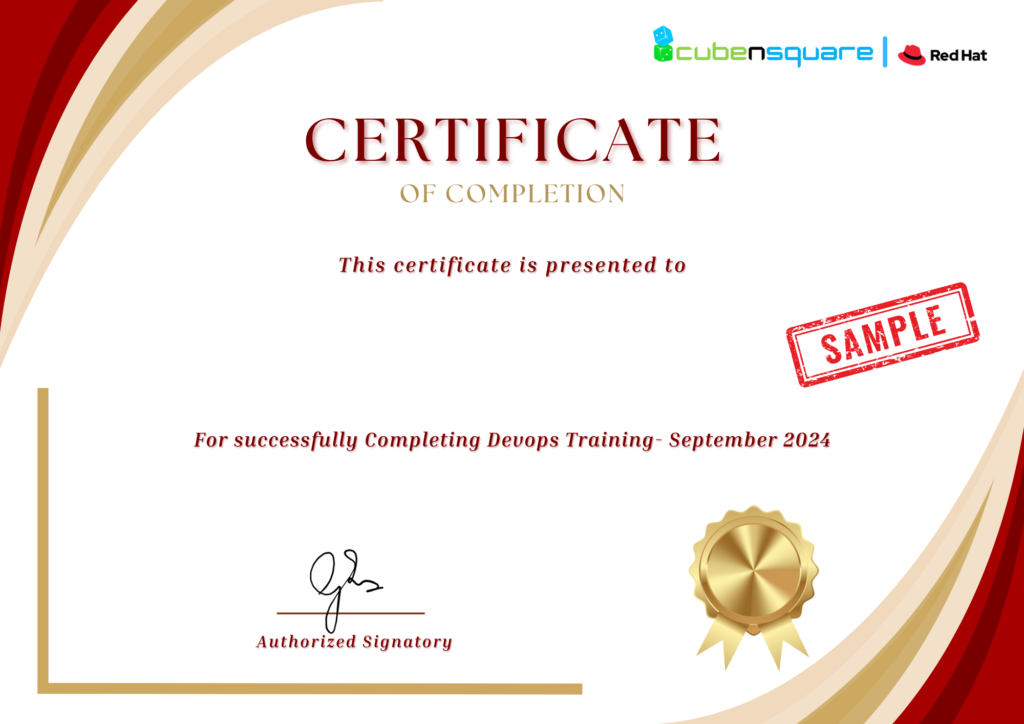
CubenSquare
Our Alumni Works At
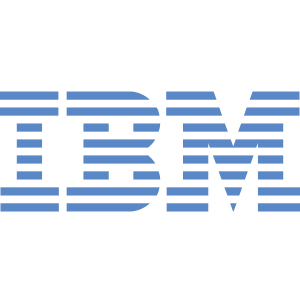


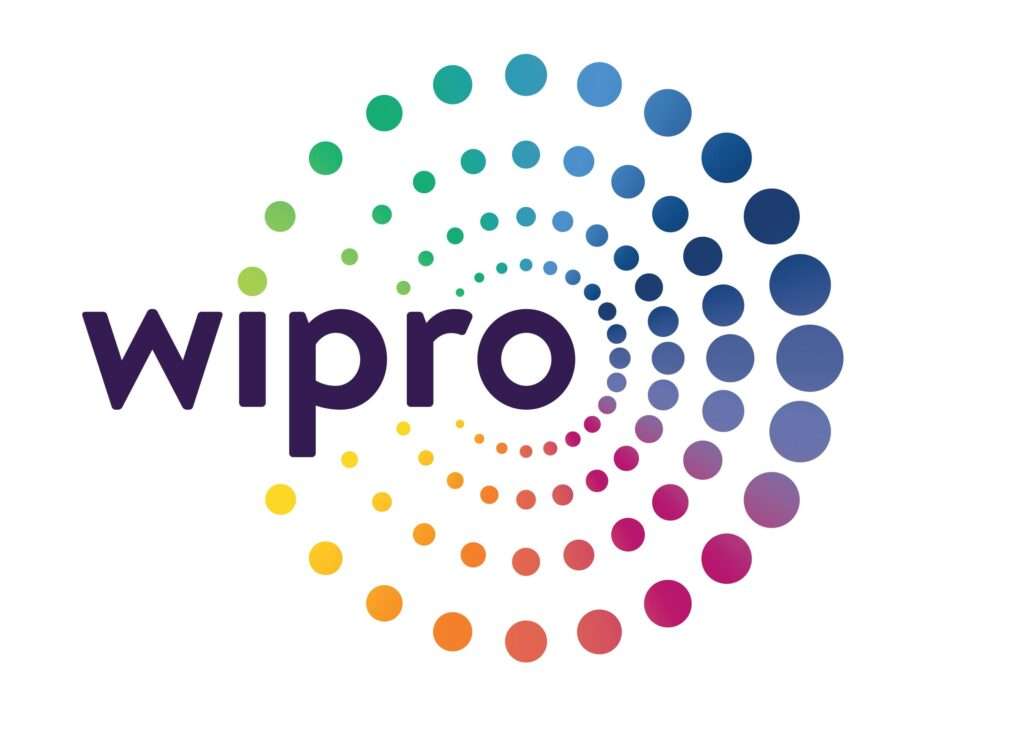




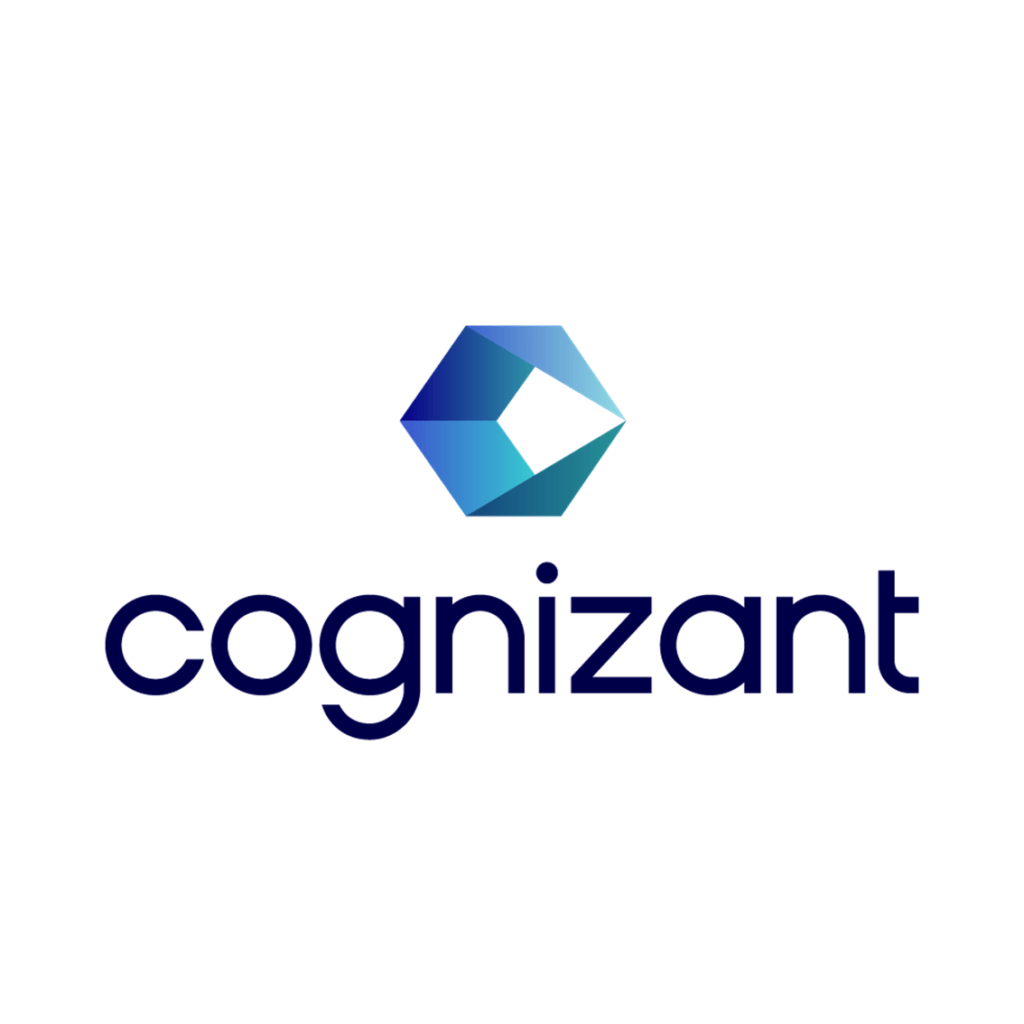



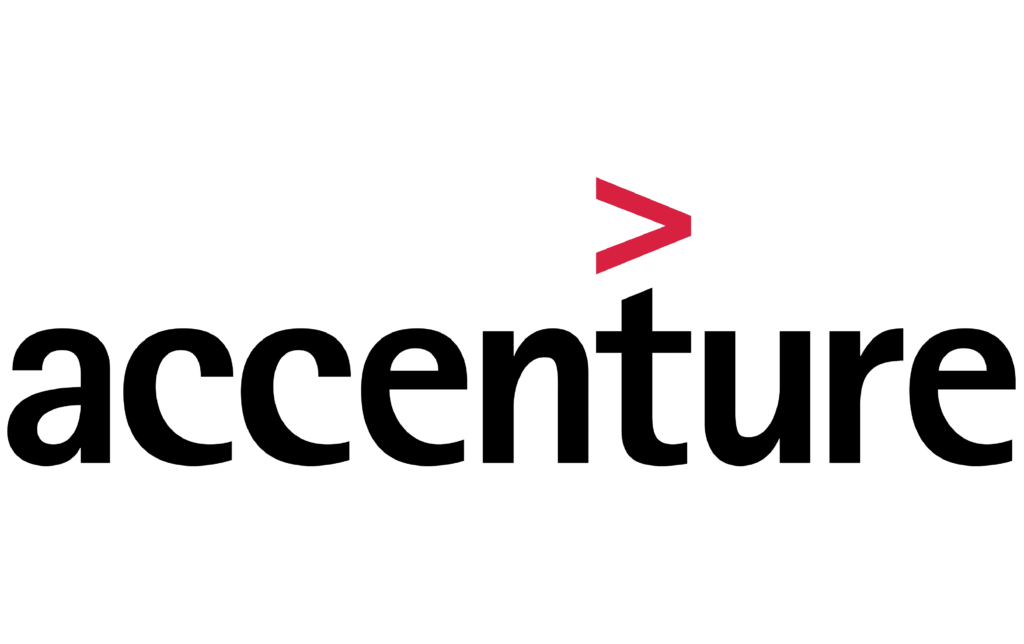

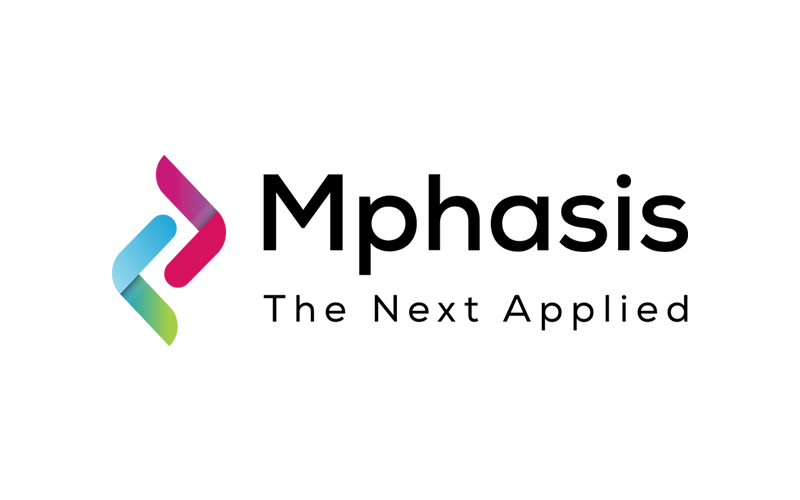






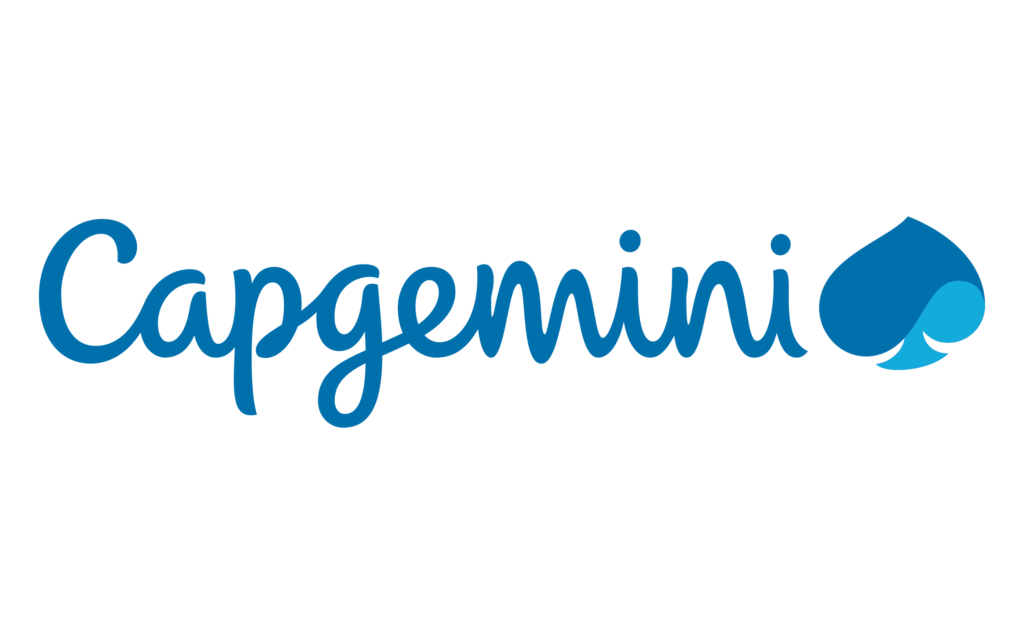

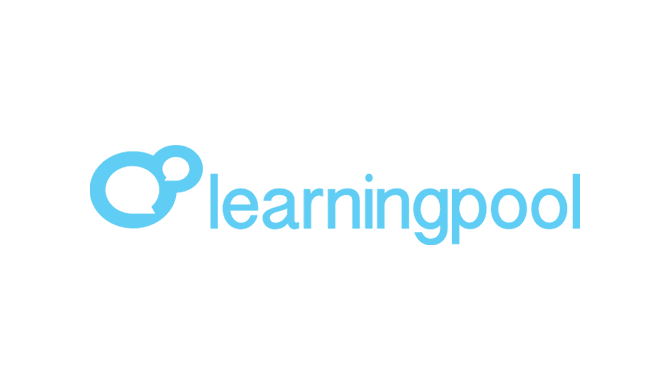

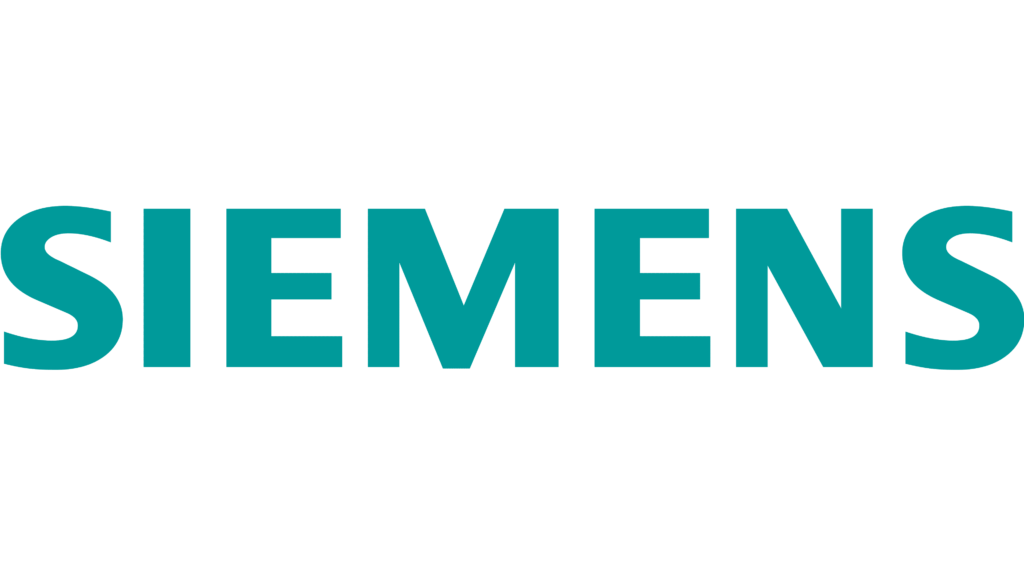

Career Roadmap
CubenSquare
Testimony
EXCELLENTBased on 299 reviews
 DIVYA GANESH2023-12-15Best place to learn devops 😃😃😃😃😃😃for beginners Gomz best trainer 😇😇to assist us to learn all the concepts .
DIVYA GANESH2023-12-15Best place to learn devops 😃😃😃😃😃😃for beginners Gomz best trainer 😇😇to assist us to learn all the concepts . Prabhu_devops Prabhumdu2023-12-15I have completed Devops here… For fresher and experienced peoples this will be the turning point in our life… Literally saying… Before class starts we will have many things in your mind… But once class started… Goms will not leave your mind to think apart from his voice…until he say’s “Thank you guys will see you in next class” 100% worth to attend his class… Don’t think about the course… surely he will not leave you without filling in your mind… Classic and real life examples.. 24/7 reachable..and will give more confidence to attend interviews… Thanks Cubensquare and Goms…
Prabhu_devops Prabhumdu2023-12-15I have completed Devops here… For fresher and experienced peoples this will be the turning point in our life… Literally saying… Before class starts we will have many things in your mind… But once class started… Goms will not leave your mind to think apart from his voice…until he say’s “Thank you guys will see you in next class” 100% worth to attend his class… Don’t think about the course… surely he will not leave you without filling in your mind… Classic and real life examples.. 24/7 reachable..and will give more confidence to attend interviews… Thanks Cubensquare and Goms… revathi k2023-12-14Hi,I am revathi recently i have completed Devops & Openshift course in cubensquare.I Just want to pass on some honest feedback of my tutor&mentor(Goms) and the institution.He concentrate on the practical knowledge rather than therory.Goms willing to help any student at anytime.He has a passion for his students to succeed in and beyond the classroom.The course is without a doubt one of the best investments I have made in myself. Goms explain the topics with real time examples which we never cant forget.They offers the various trainings and internship for students and experienced.Cubensquare is the result of hard work, dedication, and a lot of sleepless nights. Congratulations on this amazing achievement.I Wish to be part of your team :)
revathi k2023-12-14Hi,I am revathi recently i have completed Devops & Openshift course in cubensquare.I Just want to pass on some honest feedback of my tutor&mentor(Goms) and the institution.He concentrate on the practical knowledge rather than therory.Goms willing to help any student at anytime.He has a passion for his students to succeed in and beyond the classroom.The course is without a doubt one of the best investments I have made in myself. Goms explain the topics with real time examples which we never cant forget.They offers the various trainings and internship for students and experienced.Cubensquare is the result of hard work, dedication, and a lot of sleepless nights. Congratulations on this amazing achievement.I Wish to be part of your team :) ranjith vinayagam2023-12-13For the past one year I am learning various courses from cubensquare terraform,red hat and now dev ops. Goms sir’s teaching methodology was unique and he makes us understand the concepts really well.I am happy that I choose this institute to learn dev ops.Every single penny i paid for this course is really worth it
ranjith vinayagam2023-12-13For the past one year I am learning various courses from cubensquare terraform,red hat and now dev ops. Goms sir’s teaching methodology was unique and he makes us understand the concepts really well.I am happy that I choose this institute to learn dev ops.Every single penny i paid for this course is really worth it Ajmal Sheriff2023-12-13Good Institute to learn Devops Course. Trainer Goms helped us to understand each and every concepts clearly. All classes are practical oriented with real time scenarios/examples which makes everyone easy to learn. We will also get a good opportunity to do a real time Project.
Ajmal Sheriff2023-12-13Good Institute to learn Devops Course. Trainer Goms helped us to understand each and every concepts clearly. All classes are practical oriented with real time scenarios/examples which makes everyone easy to learn. We will also get a good opportunity to do a real time Project. Kanaga Valli2023-12-13I was considering taking a course but wasn't sure what to choose and was unsure whether I could accomplish it. Goms sir is the one who gave me confidence and helped me become an expert in both openshift and DevOps. I begin both concepts with no prior understanding of openshift and DevOps. Now I understand what to do with openshift and DevOps. He clarified all of my clarifications. I've never seen such a dedicated teacher in my life. Thank you once more, Gom Sir
Kanaga Valli2023-12-13I was considering taking a course but wasn't sure what to choose and was unsure whether I could accomplish it. Goms sir is the one who gave me confidence and helped me become an expert in both openshift and DevOps. I begin both concepts with no prior understanding of openshift and DevOps. Now I understand what to do with openshift and DevOps. He clarified all of my clarifications. I've never seen such a dedicated teacher in my life. Thank you once more, Gom Sir Zakirhussain Noorulla2023-12-13The Best place to 1.Enhance your carrier 2.Change your Non-IT domain to IT domain 3.Get your dream job with good hike. I have done my devOps course and Redhat openshift certification recently in CubenSquare. Pros : 1.Very skilled trainers for each technology. Specially our trainer GOMS, the way he teach each topic with correlated realtime examples (live projects) in layman terms makes better understanding and register in our mind easily. 2. They provide very clear live running notes for each class with recordings, with all presentation, nowhere institute will provide this .So after years also we can easily refer incase of doubts. 3. I personally like, the classes are much more practical sessions rather just showing PPT and boring. 4. They follow perfect class timings, No last minute changes. At rare case if any changes we get to informed before itself. 5. Both weekdays/weekend and online/offline available. 6.Very reasonable price for each course, mainly they have easy instalment option which is helpful for most of students. 7. Good placement opportunities as being recruitment partners with TATA and other organisation. 8. All over best place to make your carrier better with all needed stuffs in technologies . Cons: Honestly No🙅
Zakirhussain Noorulla2023-12-13The Best place to 1.Enhance your carrier 2.Change your Non-IT domain to IT domain 3.Get your dream job with good hike. I have done my devOps course and Redhat openshift certification recently in CubenSquare. Pros : 1.Very skilled trainers for each technology. Specially our trainer GOMS, the way he teach each topic with correlated realtime examples (live projects) in layman terms makes better understanding and register in our mind easily. 2. They provide very clear live running notes for each class with recordings, with all presentation, nowhere institute will provide this .So after years also we can easily refer incase of doubts. 3. I personally like, the classes are much more practical sessions rather just showing PPT and boring. 4. They follow perfect class timings, No last minute changes. At rare case if any changes we get to informed before itself. 5. Both weekdays/weekend and online/offline available. 6.Very reasonable price for each course, mainly they have easy instalment option which is helpful for most of students. 7. Good placement opportunities as being recruitment partners with TATA and other organisation. 8. All over best place to make your carrier better with all needed stuffs in technologies . Cons: Honestly No🙅 Selvaganapathy2023-12-13CubenSquare is the Best place to learn Devops , Redhat Openshift, Ansible and other offered cources in an effective way with real time examples and gain knowledge with live scenarios & problem solutions. trainer Mr.Goms is the best person to teach these technologies from scratch & making the people expert in their domain. Also they offer with technology experts working on real time is very much helpful to know & feel the work and present in the interview and they guide and support until we get a job. I appreciates CubenSquare teams and support they provided during my learning path. Thank you Cubensquare!!!
Selvaganapathy2023-12-13CubenSquare is the Best place to learn Devops , Redhat Openshift, Ansible and other offered cources in an effective way with real time examples and gain knowledge with live scenarios & problem solutions. trainer Mr.Goms is the best person to teach these technologies from scratch & making the people expert in their domain. Also they offer with technology experts working on real time is very much helpful to know & feel the work and present in the interview and they guide and support until we get a job. I appreciates CubenSquare teams and support they provided during my learning path. Thank you Cubensquare!!! DHANUSH Danu2023-12-13I really enjoyed this class and the format it was presented in. For me, I learn and retain much more through an online class. I retain more information. I found it relaxing to be able to turn the work on the assignments and test at my leisure and when I had the time. To be honest, there is nothing that I disliked about the course. Special thanks to Goms for guiding me. Thank you once again.
DHANUSH Danu2023-12-13I really enjoyed this class and the format it was presented in. For me, I learn and retain much more through an online class. I retain more information. I found it relaxing to be able to turn the work on the assignments and test at my leisure and when I had the time. To be honest, there is nothing that I disliked about the course. Special thanks to Goms for guiding me. Thank you once again.
Comparision Table
Devops Master Program
Week Day Class - 9.5 Weeks
Devops Advanced Program
Week Day Class - 9.5 Weeks
Cloud Master Program
Week Day Class - 9.5 Weeks
Request a Quote
Ready to Upskill? Contact us now!
Learn More From
Frequently Asked Questions
All classes are available – Online and Offline
All classes are Live led by an instructor
Yes for all students

